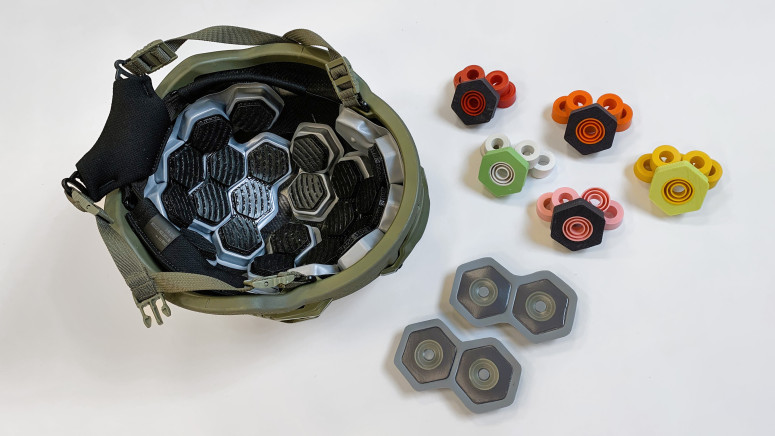10 Nov With $15M boost from U.S. Navy, engineers will help detect, prevent traumatic brain injuries

The new helmet liner system prototype that Team Wendy manufactured as a direct outcome from PANTHER research. The liner system is designed to provide enhanced protection against traumatic brain injury. Photo courtesy of Team Wendy
With new funding from the U.S. Office of Naval Research, an interdisciplinary initiative led by the University of Wisconsin–Madison will continue to grow its research on concussions and other traumatic brain injuries.
Christian Franck, a professor of mechanical engineering at UW–Madison, started the initiative, called PANTHER, in 2017. Under his leadership, it has grown to include more than 30 principal investigators nationwide, bringing together scientists from academia, industry and government to study traumatic brain injuries through a range of approaches.
The U.S. Office of Naval Research has awarded PANTHER new grants totaling $15 million, allowing the researchers to advance their groundbreaking work in developing better technologies for detecting and preventing traumatic brain injuries.
The initiative’s researchers work closely with industry partners to rapidly translate fundamental scientific discoveries from the lab into next-generation consumer products that will protect the brain from injury. Franck says exciting developments are beginning to emerge from these industry partnerships.
For example, helmet manufacturer Team Wendy has developed a prototype of a more protective helmet liner that’s informed by PANTHER research results. And industry partners Trek Bicycle and Milwaukee Tool each have new helmets in development that incorporate insights from PANTHER researchers.
“These grants really allow us to deepen our collaboration with industry partners and will lead to even more advances that can enable safer helmets and protective gear not only for our military personnel but also for the public,” Franck says. “I’m very excited by the potential of this initiative to provide better solutions for preventing traumatic brain injury that everyone can access.”



